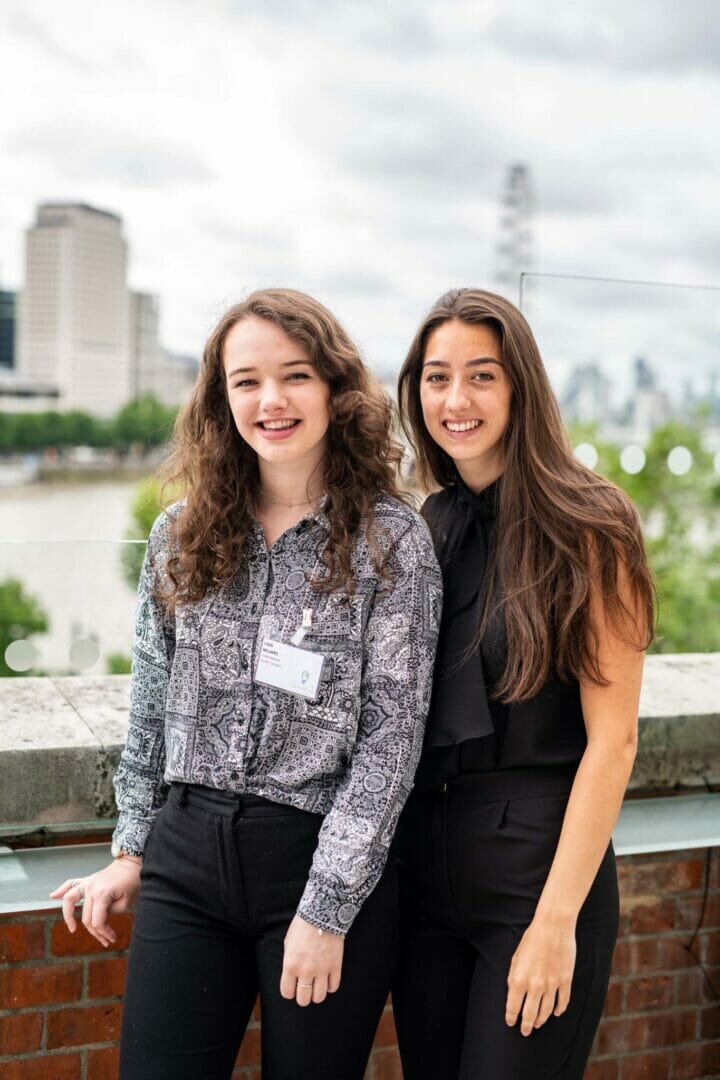A team of second year students from Leeds Beckett University has won the grand Engineering for People Design Challenge prize, with their idea for a women’s community hub built of locally sourced natural and affordable materials. The annual competition is organised by Engineers Without Borders UK, a charity dedicated to inspiring the engineering community to serve all people and our planet better than ever before.
Over 6,500 first and second year students from universities across the UK and Ireland participated in the competition. The Grand Finals, held at the IET in London on 14th June, saw the top 37 teams pitch their ideas to a panel of expert judges in a bid to win the Grand Prize of a £2,000 educational bursary.
This year’s brief focused on the communities located in Tamil Nadu in India, where the vast majority of people still live in rural areas where the population is steadily increasing. Students were challenged to rethink rural life and propose interventions that underpin aspirational lifestyles and address the impacts of poor water and sanitation provision, a lack of waste management, limited transport and digital infrastructure and unreliable energy provision.
The winners, an all female group of civil engineering students from Leeds Beckett University, wanted to improve the position of women in rural communities by designing a place where they could spend time and learn new skills in a safe environment. The building materials, including bamboo and enforced clay bricks, were easy to source locally and the team tested them in practice during the design phase to ensure their suitability. The judges were impressed by their comprehensive approach to the challenges outlined in the brief and commitment to creating a solution that would grow to benefit the entire community.
“It feels incredible to have won the Grand Prize,” said Lydia Williams. “Taking part in the competition was a really positive experience, from start to finish. We learnt so much about the importance of sustainable design and engineering, while also developing our skills in key areas such as teamworking, brainstorming and problem solving.”
“The Engineering for People Design Challenge is a real force for change,” added Charlotte Sutherland. “The global nature of the competition provided real insight into some of the major problems that the world is facing. On a personal level, taking part really helped to boost my confidence, especially when it came to project presentations.”
The second place went to a team of Product Design students from Nottingham Trent University for their innovative design for an affordable and hygienic sanitary towel solution that would enable girls in rural communities to attend school during their periods.
All attendees were also invited to nominate their favourite innovation for a ‘People’s Prize’, which saw the award go to a team from Heriot-Watt University for ecoPit, an improved version of the traditional cooking stove designed to eliminate smoke to reduce pollution.
“The level of skill, commitment and insight we have seen today has been outstanding” said Katie Cresswell-Maynard, Chief Executive, Engineers Without Borders UK. “What the Engineering for People Design Challenge encourages students to do is demonstrate a real understanding of the social, environmental and economic implications of engineering, rather than just technical skills, and come up with some truly innovative ideas that could provide real benefits to people.
We are also thrilled by the support we’ve received from the engineering community across the world – more than 200 people from over 30 countries volunteered to review the students’ proposals during the selection process. It shows that the Challenge resonates strongly and that people across industries recognise the importance of global responsibility in engineering for the future of all people and the planet we live on.”
Following eight successful years in the UK and Ireland reaching 34,500 students, the competition is set to reach wider international audiences in its next instalment. The 2019/2020 Engineering for People Design Challenge will see Engineers Without Borders UK join forces with its cousin in South Africa to set a brief that will invite students to use their engineering skillset for the benefit of an urban community in Johannesburg. Additionally, for the first time ever, engineering students in the US will also be able to participate in the Challenge as Engineers Without Borders USA will pilot the competition in US universities.
To read more about this year’s winners and engage in the 2019/2020 Engineering for People Design Challenge, please visit www.ewb-uk.org






